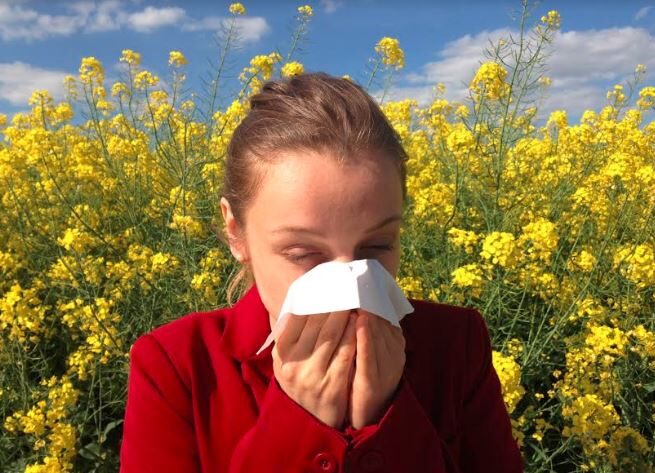30 percent of adults in the U.S. suffer from allergies.
If you suffer from seasonal allergies, there’s no doubt you dread that time of year. For some of us, allergy season is all year round.
Luckily, your allergies don’t have to ruin your life. There are many things you can do to manage the symptoms of allergies and help you feel like yourself.
Not all allergy treatments are equal. The right treatment for you depends on a few factors including your lifestyle, your budget, and the nature of your allergies.
Keep reading for some basic tips on how to deal with allergies.
Visit an Allergist
If your allergies are severe and are significantly interfering with your daily life, it’s probably time to visit an allergist.
An allergist is a doctor who is specifically trained on the immune system, allergies, asthma, and immune system deficiencies. They can diagnose and treat many disorders, common or rare, in patients of any age.
An allergist/immunologist can help you diagnose and manage your allergies. Some allergies can be life-threatening, so don’t hesitate to make an appointment if your symptoms are significant.
It’s also important to keep in mind that an allergy test alone is not enough to truly diagnose and treat allergies. An exam from an actual medical doctor and an evaluation of your medical history will prove more useful than an allergy test alone.
Get Allergy Shots
Once you have determined what you are allergic to, you may opt to receive allergy shots.
These shots work by reducing your sensitivity to the substances that you are allergic to. Your doctor will inject small but increasing amounts of your allergens over a period of time.
At first, the injections will be weekly for 3 to 6 months. Then, they will be monthly for 3 to 5 years.

If you suffer from seasonal allergies that cause symptoms such as nasal congestion, itchy eyes, swollen eyes, or sneezing, this treatment may be right for you.
Take Decongestants
Taking decongestant medications can bring you short term relieve of your nasal congestion and stuffy nose.
You’ll feel better in the short term. However, it’s important to talk to your doctor before using this type of medication.
Decongestants can increase your blood pressure and heart rate and can cause you to have trouble sleeping.
Using nasal spray decongestants regularly can cause long term damage to your nose lining, so it’s important to follow the manufacturer’s directions carefully.
Take Antihistamines
Antihistamines are another class of drug that can be used to treat the symptoms of allergies.
These medicines are great for itchy eyes, sneezing, and running noses. Antihistamines have long been used to provide relief for seasonal allergies, but major developments have led to the creation of better drugs.

Most people are familiar with the older class of antihistamines, which include Benadryl. These drugs are notorious for causing drowsiness even when taken as directed.
Fortunately, there is a newer class of antihistamines that do not cause unpleasant side effects. These drugs include Claritin, Allegra, and Zyrtec.
Another benefit of these newer drugs is that they only have to be taken once daily as opposed to many times throughout the day.
Control Animal Dander
Household pets are a common source of allergies for many people.
Animals with fur, including dogs and cats, have a protein that is found in their saliva, dander, and urine that is a common allergy trigger. The allergen becomes airborne and enters the eyes, nose, and lungs to trigger a reaction.
For most pet parents, getting rid of their pet is not an option. You can reduce the number of pet allergens in your home by regularly mopping your floors, keeping pets out of the bedroom, and opting for hardwood or tile floors instead of carpet.

If you have a dog, brush him or her outside on a regular basis to get rid of some of the allergens. Choose leather sofas as opposed to fabric as they are less likely to trap pet hair.
Control Dust Mites
Another common source of allergies in the home is dust mites.
These mites consume dust in your home and deposit allergens in their fecal matter. These allergens become airborne and affect humans.
Dust mites are found in mattresses and bedding. Creating barriers between yourself and the dust mites is the best way to avoid inhaling their allergens.
Buy allergy-proof covers for bedding including mattresses, box springs, and pillows. Wash your bedding weekly in water that is at least 130 degrees Fahrenheit.
Using a dehumidifier can also help reduce the number of dust mites in your home.
Avoid Pollen
Despite our best efforts, it can be difficult to avoid pollen, a common allergen.
Pollen travels significant distances and it’s pretty much impossible to avoid it completely without living in a bubble.
Keeping your windows closed, using the air conditioning, and driving with your car windows up are the best ways to avoid this allergen.
More Help on How to Deal with Allergies
While many of us suffer from allergies in the late spring, summer, and fall, if not year round, we don’t have to let allergies ruin our lives.
There are actions you can take to alleviate your symptoms or prevent contact with allergens. If you haven’t consulted an allergist for allergy testing to identify your triggers, that is the first step to getting relief.
Your doctor will also be able to advise you about medications and medical treatments and how to deal with allergies. For more tips, check out the health and wellness section of our blog.

